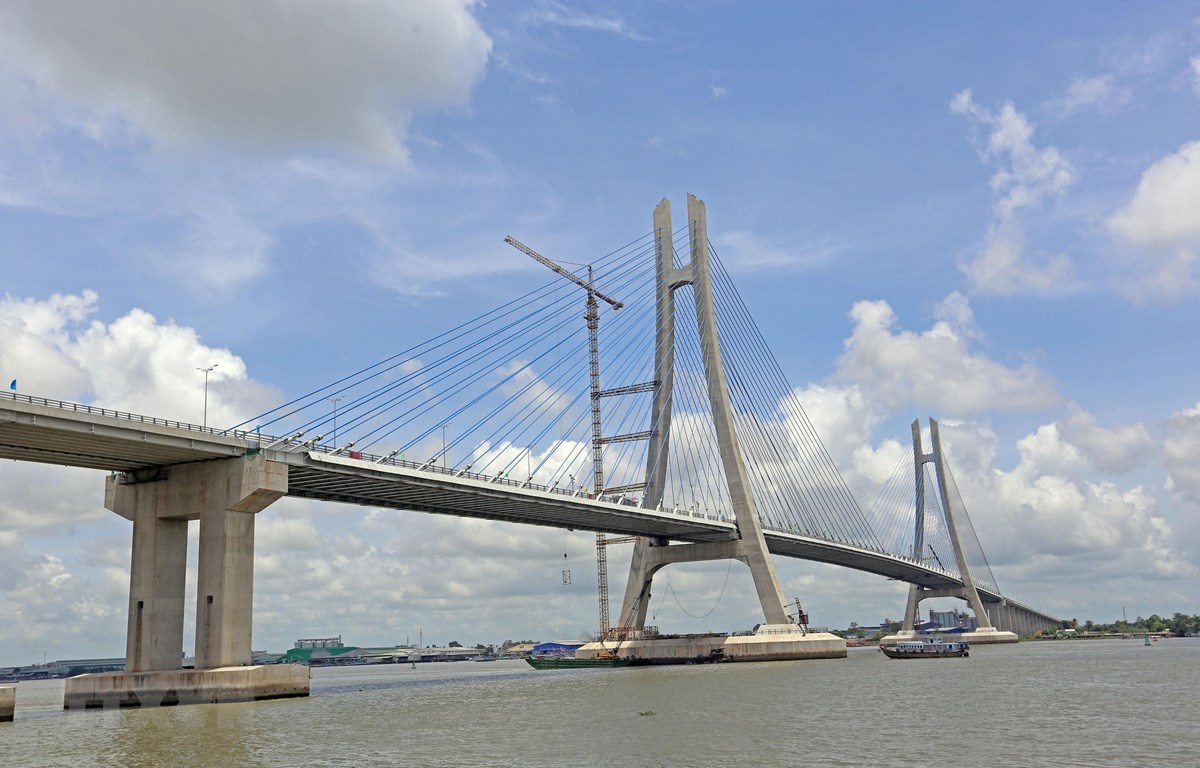
Vam Cong bridge - the second cable-stayed bridge across Hau river, a tributary of the Mekong. (Source: VNA)
Nhan said the city has close economic connectivity with the Mekong Delta. The two sides make up 42 percent of the country’s economy, but the investment in transportation remains poor, only 20 percent of the country’s investment in 2011-2015 and 26 percent in 2016-2020. Social investment in transport infrastructure in the Mekong Delta and HCM City comprises of a mere 4 percent of the total investment, the remaining from local budget.
The official recommended increasing the total investment for transport infrastructure development in the delta and the city to 35 percent in the next 10 years (2020-2030), suggesting to use part of the city’s State budget collection to invest in transport development.
The investment should focus on key projects which help connect traffic in the Mekong Delta with Ho Chi Minh City and the southeastern region, including HCM City – Can Tho – Ca Mau expressway and highways connecting Mekong Delta localities with Cambodia, Nhan said.
The Mekong Delta makes up 19 percent of the country’s population and up to 50 percent of the rice output, 65 percent of the aquaculture, 70 percent of fruits, 95 percent of exported rice, and 60 percent of exported fish.
It has favourable location in trade with countries in the Association of Southeast Asian Nations (ASEAN) and the Greater Mekong Subregion (GMS).
However, the delta is facing a number of challenges posed by climate change, especially rising sea level.
Besides, high-speed economic development in localities has caused environmental pollution, ecological imbalance, land subsidence, groundwater depletion, and coastal erosion.
Prime Minister Nguyen Xuan Phuc issued Resolution 120/NQ-CP on sustainable development of the Mekong Delta in response to climate change in 2017.
After implementing the resolution, the delta recorded impressive GDP growth of 7.8 percent in 2018, the highest in the past four years and higher than the average of the country (7.08 percent).


















